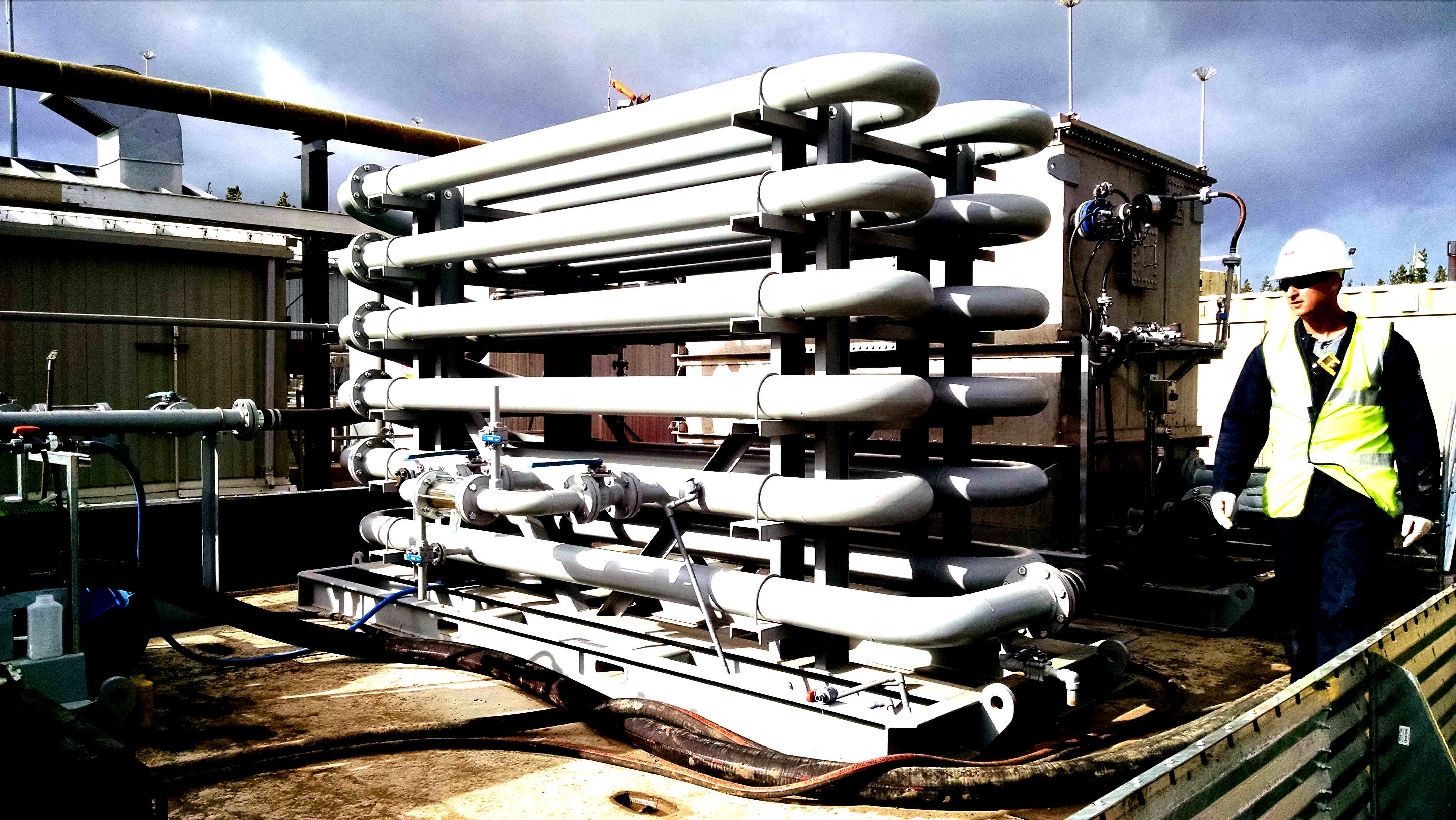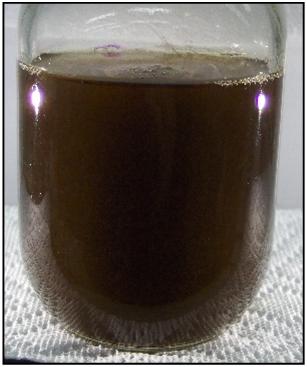|
|
Proprietary Water Enhancement and Clarification Technologies
Aquero Company, founded in 2002, provides research and development on a contract basis in the area of proteins, polyamino acids, polysaccharides, lipids and related chemical materials. Aquero also conducts early commercialization activities such as writing, filing and prosecuting patent applications worldwide, meeting with investors and customers of client companies, and providing prototype samples for pre-commercial evaluation.
Our current projects focus on novel and useful compositions of 100% human milk. These compositions are made via our own novel and proprietary methods that are far more efficient and cost-effective compared to conventional manufacturing processes of human milk products. The products formulated from these compositions are commercially sterile, shelf stable, and fully "competent".
This means they retain all of the multitude of bioactive molecules like immunoglobulins and growth substances in fully active forms. Significantly, the products can be shipped and kept at room temperature without decomposition for extended periods of time.
The products are available in both powdered and liquid forms. The emphasis to date has been on human milk, but the patent filings include all mammalian milk. A lot more information about these projects is available within the human milk tab on the left.
Such products did not exist before. Fresh human milk and other mammalian milks are wonderfully alive when freshly expressed. They are replete with many thousands of bioactive molecules like enzymes, immunoglobulins, and growth factors, plus robust populations of both mammalian and microbial cells. However, the milks are not stable. They begin to metabolise their own content right away upon being expressed by the mother. The best option is for the infant to be fed directly by the mother. If this is not feasible or even possible, the freshly expressed milks can be refrigerated for a few days or frozen for a longer period before use.
But for commercial purposes, the milks are subjected to heat-based techniques that while partially or completely inactivating the microbes and other cells, thus stabilizing the milk. In the process, the bioactive components are also compromised. Depending on the more moderate heat levels of pasteurization at around 65 oC, or in the extreme of very high temperature "retort" at around 125 oC and higher, the milk ranges from partial to complete inactivation of the biocomponents.
The retort method is used to make the products shelf-stable, which is convenient and a good marketing strategy, but can result in a product that is compromised nutritionally and immunologically.
We provide samples of novel chemical materials up to the kilogram level. We also offer technologies for license or sale. We have worked with both large and small companies worldwide in a number industries and commercial sectors.
Brief summaries of some of our earlier projects and the sponsoring companies are provided below.
Procter and Gamble. Additives for personal care including antitartar agents for Crest, dispersants for Tide and Cheer, superabsorbents for Pampers and related products.
Rohm and Haas (later acquired by Dow). Antiscaling agents and corrosion inhibitors for water treatment, dispersants for detergents, and polymeric materials for personal care applications.
Bayer AG. Biopolymer additives for green detergents and related products. The detergent based projects developed into businesses that produce 10,000's of metric tons of polymers per year.
BASF Master Builders. Construction chemicals for improved performance of cement based materials and other related materials
Stepan Company. Agricultural agents for erosion control and water penetration, plus a number of other applications.
Filterboxx Water and Environmental. Novel chemicals and chemical treatments for produced water clarification in the oil sands region of Canada.
Gibson
Energy. Water treatment chemicals, methods of water clarification, and complete on-site treatment systems
for disposal of process water at deep-well disposal sites in Alberta, Canada. We designed, built, installed, commissioned,
and provided initial operations for a hard-piped and permanently wired system on the ground in western, central Alberta.
We also designed a mobile, truck-mounted system for treating frac waters and other process waters. The collective oilfield projects produced chemistries, methodologies, and systems that have been adopted by O&G companies and related water-service companies throughout the world.
We have also founded and worked with several start-ups including Folia, Inc. (precursor to Aquero); Innovium, Inc.; Aquial, LLC; Aquero Canada, LLC; and Aquero Process Water Systems, LLC.
The common thread of all of the projects has to do with water and substances dissolved, emulsified, or suspended in water. For example, the sponsor and customers may want the aqueous solution to be completely clarified, or they may want some substances removed and some retained, or they may want the aqueous product to be built in a completely novel way from water and both biological and mineral components.
Aquero's patented technologies include novel compositions of matter, methods of their synthesis, their uses, commercial manufacturing processes, and proprietary capital equipment that is designed specifically to optimize performance. We have been awarded over 100 national and international patents and have several patents pending. All have been licensed at one time or another.
Prior to focusing on work solely in the private sector, we published over 100 professional papers in the peer-reviewed literature. We also participated in many national and international meetings as speakers, invited speakers, keynote speakers and organizers.
Most of that work was funded through 48 grants by various federal and state agencies including the US National Science Foundation, the US National Institutes of Health, the National Institute of Environmental Health Sciences, the NIH Study Section on Tissue Engineering, the US National Oceanic and Atmospheric Association, the US Office of Naval Research, the US Office of Technology Assessment, the US Environmental Protection Agency, the Mississippi Alabama Sea Grant Association, and the Alabama Research Institute.
Aquero has several product lines that have been commercialized. This is accomplished via agreements with partner companies, although Aquero Company also conducts some of its own operations.
Our first product was a soil-retention agent for irrigation farming, brandnamed SoilSentry™. It was introduced in the Imperial Valley of California several years ago and is undergoing adoption elsewhere in California and the western USA.
SoilSentry prevents erosion of soil from the fields and helps to keep agricultural additives like fertilizers, herbicides, and pesticides on the field as well. The runoff water and the receiving streams are thus kept clear and clean.
Oilfield Projects
Our water-treatment chemicals and protocols are widely used throughout the world in de-oiling and clarifying process waters and produced waters that accompany oil recovery operations. We originated proprietary flocculants and coagulants, along with novel protocols and capital equipment that were designed to optimize the utility of these chemistries. The first applications for Aquero technologies were in the oil sands region of Alberta, Canada, with most companies and countries picking up the technologies along the way.
In many oil recovery operations in Canada and elsewhere, for each barrel of oil recovered, there are about 2 barrels (or more) of water produced that contain oily residuals. This "produced water" must be clarified by mandate prior to returning it to the environment or recycling it into the recovery operations. Our chemicals and processes provide quick, highly effective, and clean ways to do this. Fracking operations generate enormous volumes of process water that require other special approaches and techniques for recycle and reuse.
Aquero's products and processes are based on renewable resources
and sustainable chemistries. We have been able to solve the cost/performance equation and now have molecules and
products that compete favorably on both cost and performance versus conventional vinyl polymers. Our technology platform
is very broad and can address a wide range of consumer, healthcare, and industrial markets.
There are circumstances and applications, however, in which the vinyl polymers are preferred.
For example, their carbon-carbon backbones impart greater thermal stability and resistance to microbial attack. Another attribute
is that their method of synthesis can be readily arranged to favor production of very high Mw, linear molecules.
This can be useful in several ways. One of these is that the very long polymers are capable of bridging of particles
at the nanometer level, as is needed in flocculation mechanisms.
Actually, we like the vinyl polymers and recognize their many useful attributes. We work with them too and try to recommend the best solution to a problem. Sometimes this is a wholly vinyl approach, or it may incorporate other conventional chemicals as well. On other occasions, we have identified interesting and helpful synergisms between the vinyl and the biological polymers. Some of these compositions and products offer a practical option for improved performance along with a better environmental profile. |
|||||||||||||||||||||||||||||||||||||||||||||||||||





